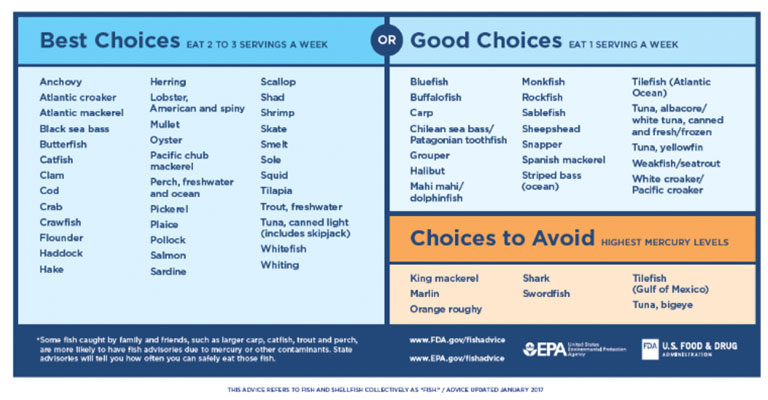FDA, EPA issue fish consumption guidelines for new, expectant mothers

Photo: Food and Drug Administration
Washington – New and expectant mothers, as well as those who are breastfeeding, should avoid fish with high mercury levels, according to new guidelines released Jan. 18 by the Food and Drug Administration and the Environmental Protection Agency.
The guidelines recommend a weekly consumption of two to three 4-ounce servings of fish with low mercury levels, stressing the nutritional benefits necessary for a child’s growth and development during pregnancy and early childhood.
An analysis conducted by FDA found that 50 percent of pregnant women consumed less than 2 ounces of fish per week.
The agencies also created a chart classifying 62 types of fish into three categories: “Best choices,” “Good choices,” and Choices to avoid.”
“Fish are an important source of protein and other nutrients for young children and women who are or may become pregnant,” Stephen Ostroff, now acting commissioner of food and drugs at FDA, said in a press release. “This new, clear and concrete advice is an excellent tool for making safe and healthy choices when buying fish.”
Post a comment to this article
Safety+Health welcomes comments that promote respectful dialogue. Please stay on topic. Comments that contain personal attacks, profanity or abusive language – or those aggressively promoting products or services – will be removed. We reserve the right to determine which comments violate our comment policy. (Anonymous comments are welcome; merely skip the “name” field in the comment box. An email address is required but will not be included with your comment.)

